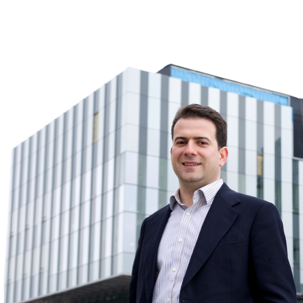We use cookies on this site to enhance your experience.
By selecting “Accept” and continuing to use this website, you consent to the use of cookies.

Michele Mosca, University of Waterloo
Michele Mosca is co-founder of the Institute for Quantum Computing at the University of Waterloo, a Professor in the Department of Combinatorics & Optimization of the Faculty of Mathematics, and a founding member of Waterloo's Perimeter Institute for Theoretical Physics. He was the founding Director of CryptoWorks21, a training program in quantum-safe cryptography. He co-founded the ETSI-IQC workshop series in Quantum-Safe Cryptography. He co-founded evolutionQ Inc. to support organizations as they evolve their quantum-vulnerable systems to quantum-safe ones and softwareQ Inc. to provide quantum software tools and services. He obtained his doctorate in Mathematics in 1999 from Oxford on the topic of Quantum Computer Algorithms. His research interests include quantum computation and cryptographic tools designed to be safe against quantum technologies. He is globally recognized for his drive to help academia, industry and government prepare our cyber systems to be safe in an era with quantum computers. Dr. Mosca’s awards and honours include 2010 Canada's Top 40 Under 40, Queen Elizabeth II Diamond Jubilee Medal (2013), SJU Fr. Norm Choate Lifetime Achievement Award (2017), and a Knighthood (Cavaliere) in the Order of Merit of the Italian Republic (2018).
Quantum Computing and Cybersecurity: Challenges and Opportunities
Quantum computer algorithms can solve certain computation problems much more efficiently than we believe we can with any classical computer.
How close are we to harnessing this apparent computational power in practice? I will give some examples of how mathematical tools bring us closer to useful quantum computers.
Quantum computers would however break the currently deployed public key cryptography, which is a pillar of cybersecurity. The consequences of not fixing this vulnerability properly in time would be devastating.
While we are likely still many years away from practical quantum cryptanalysis, it also takes many years to properly deploy new cryptography designed to defend against quantum attacks.
One of the major challenges is building confidence in the difficulty of the underlying mathematical problems even for quantum computers.
These challenges offer a range of opportunities that I will discuss, including research problems and economic opportunities.
Wednesday, May 29, 2019
4 p.m.
LH 2064